Delivery Drones: What Makes Them Different?
Drone delivery is a game-changer in logistics. Amazon and Walmart are making use of drones for faster delivery. But what makes delivery drones differe
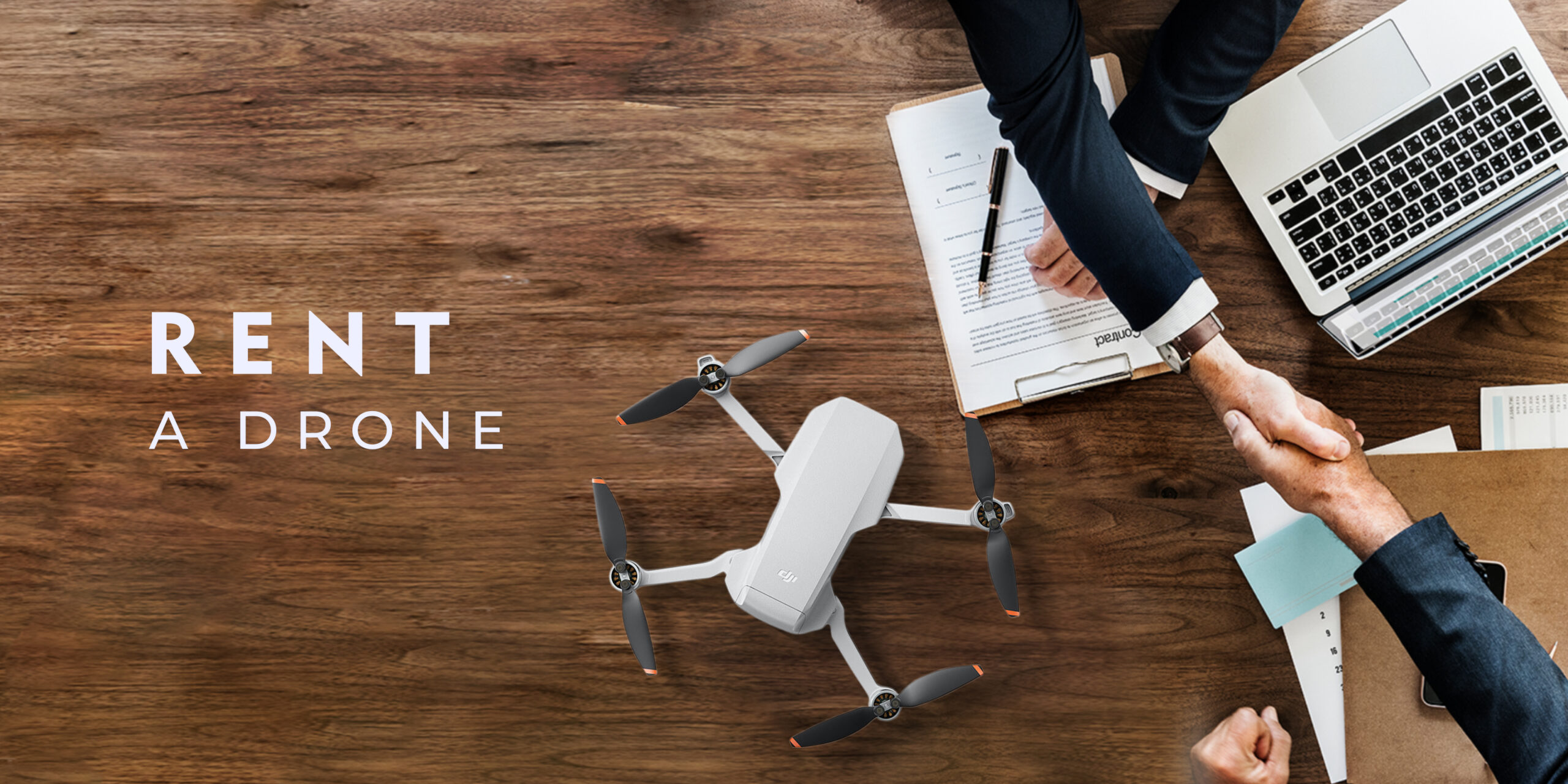
The Indian agricultural landscape has undergone a significant revolution with the introduction of AI, the IoT and drones. Drones have now taken flight across Indian farmlands, revolutionizing the way agriculture is practiced. India is heavily dependent on agriculture and allied activities, and drones offer a much-needed tech leap. Among these alterations, a promising and profitable prospect has emerged: the drone rental business for rural entrepreneurs.
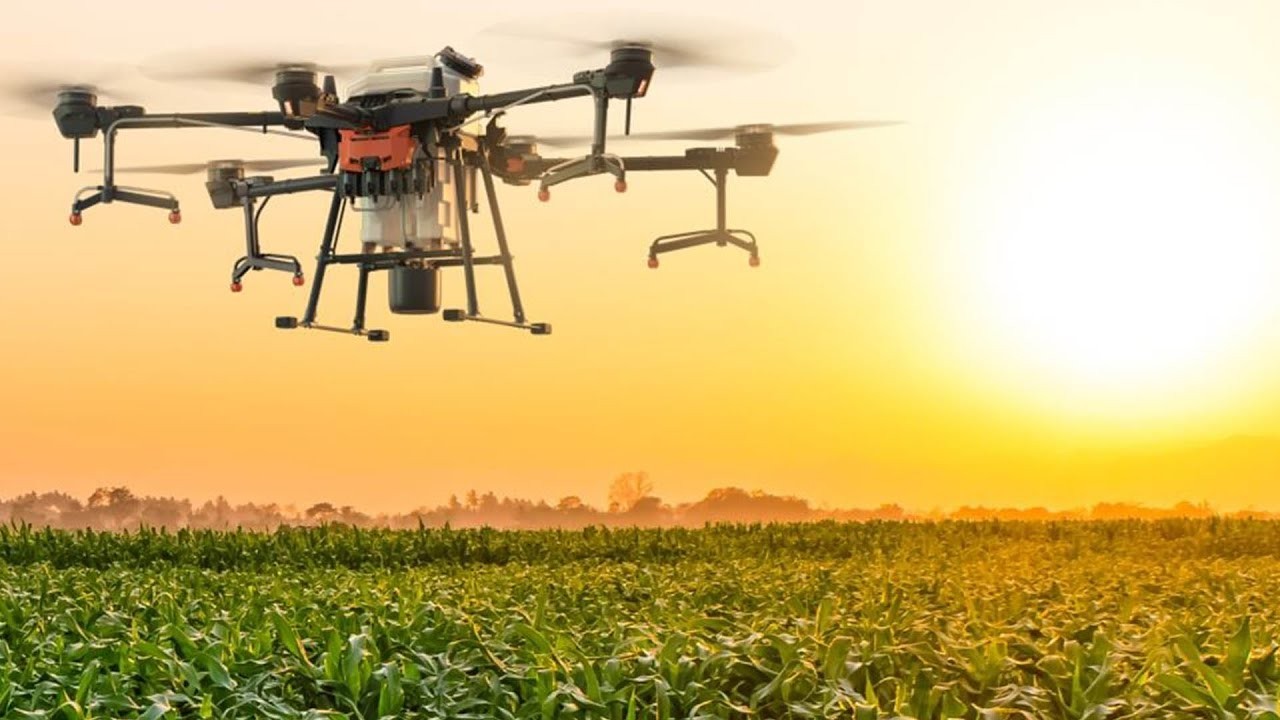
India’s agricultural sector, traditionally dependent on manual labour and rudimentary tools, faces several challenges, including labour shortages, unpredictable weather patterns, pest attacks and low productivity. Drone offers targeted solutions to several of these issues. Agricultural drones, equipped with multispectral sensors, GPS, and high-resolution cameras, can monitor crop health, assess soil conditions, optimize irrigation, and even perform precision spraying of pesticides and fertilizers.
The government has taken note of this potential. In 2022, the Ministry of Agriculture and Farmers Welfare issued guidelines to promote the use of drones in agriculture, including financial assistance for the purchase of drones and training.
Additionally, the Drone Rules 2021 simplified the regulatory framework, reducing bureaucracy and promoting local manufacturing and innovation. These expansions have created an ecosystem ripe for entrepreneurial ventures, particularly in rural India, where drones can be utilized on a large scale.
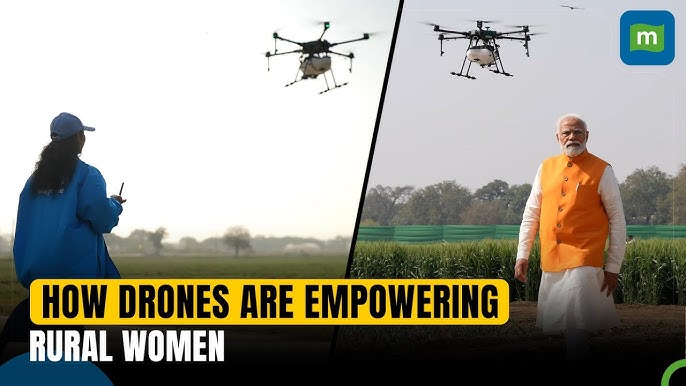
Small farmers, who comprise over 85% of India's farming population, often lack the capital to purchase superior agricultural drones, which cost between ₹3 lakhs and ₹10 lakhs. However, they are increasingly open to renting drone services for specific operations, for example, spraying insecticides or mapping their fields. This demand gap presents a profitable business prospect for rural entrepreneurs willing to invest in drones and provide rental-based services.
Renting drones lets farmers access cutting-edge agricultural technology without ownership. For example, spraying pesticides with drones is up to 90% more time-effective and 30-40% more lucrative than manual spraying. Moreover, drones reduce the health threats associated with pesticide exposure. These benefits have already begun to shift farmer mindsets, particularly in Maharashtra, Punjab and Telangana, where pilot programs and government-backed drone schemes have been established.
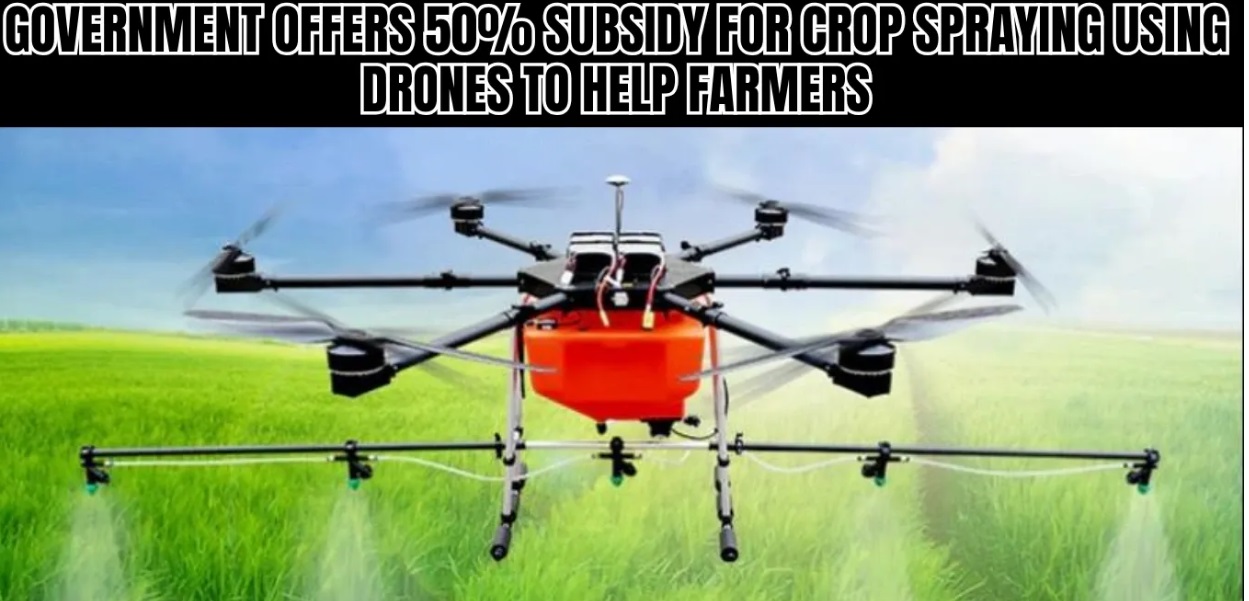
The Indian government has pushed for drone acceptance through numerous targeted initiatives. The Sub-Mission on Agricultural Mechanization offers monetary assistance of up to 100% or ₹10 lakhs for the purchase of drones by Farmer Producer Organizations and custom hiring centres. Under the “DroneDidi” initiative announced in the Budget 2023-24, women Self-Help Groups are being qualified and equipped with agricultural drones to offer rental services within their communities.
In 2025, more than 15,000 women will be trained and will earn between INR 25,000 and 35,000. Furthermore, the SVAMITVA scheme, which aims to map rural inhabited lands using drones, has created a secondary demand for drones in land surveying and property record digitization.
These initiatives not only decrease the monetary burden of acquiring drones but also create organized market demand, making the drone rental business a well-supported endeavour.

A drone rental business does not need a massive investment. Depending on the type and specifications, a superior agricultural drone can be purchased for ₹3 to ₹ 6 lakhs. Training programs, provided by DGCA-approved RPTOs, cost about ₹30,000 to ₹70,000. Once certified, one can offer drone services on a rental basis.
A drone operator can charge INR 400 to 600 per acre for pesticide spraying. If a drone is used for 10 acres per day for 20 days a month, monthly revenue could be INR 80,000 to 1,20,000. A rural entrepreneur could earn a monthly profit of INR 40,000 to ₹60,000.
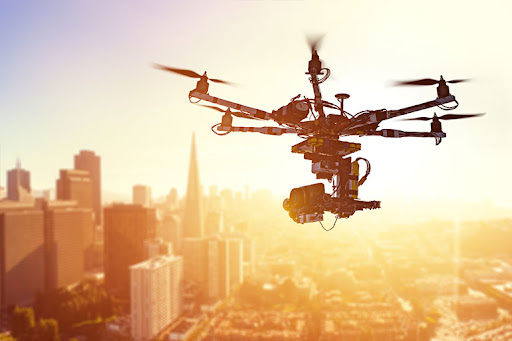
While agriculture is a key driver of drone use in rural India, drones are also used for land surveys. Real estate developers and government agencies require precise aerial mapping services, which drones can efficiently provide.
Drones are also being used in weddings, religious festivals, and other events. Aerial photography and videography services can also be offered to increase streams for drone entrepreneurs. Moreover, utility companies are hiring drones for infrastructure inspections in rural areas, which is opening up business-to-business (B2B) rental models.

Numerous rural drone entrepreneurs are successful in this emerging industry. In the Yavatmal district of Maharashtra, farmers formed a drone service cooperative with NABARD. With three drones and five drone pilots, they offer spraying services to over 1,200 acres each season, generating an annual revenue of ₹10–12 lakhs.
In Punjab, a drone rental startup was launched in 2022 with just one drone. By providing spraying, mapping, and photography services, the startup had 3 drones and hired 4 local operators within 2 years. The monthly profit exceeded ₹1 lakh, and collaborated with local Farmers' Produce Organizations and agri-input companies.

As stated by a report by EY and FICCI, the Indian drone industry will reach ₹30,000 crore by 2026, producing over 1 lakh direct jobs. Agricultural drones alone are expected to create a 5,000-crore market.
Furthermore, the rise of drone-as-a-service platforms will further standardize pricing, advance service delivery, and create franchising prospects. Rural entrepreneurs can become regional drone service providers by partnering with agritech firms, state governments, and agricultural businesses.
In smart farming, drones will play an essential role. The rural youth, if given the right training, can be at the centre of this transformation.
With strong government support, rising demand from farmers and expanding use cases, drone rentals offer profitability. Beyond just a business, this model empowers rural youth and boosts agricultural productivity. With India becoming a global hub for drones, rural entrepreneurs can take the lead. Investing in drones is an investment in rural prosperity, innovation, and independence. The sky is the limit.
If you want to learn about piloting drones, then you should enroll in a DGCA-approved RPTO like Flapone Aviation. Want to make the most of this emerging opportunity? Come, join us today for a bright future.
Whether you're a beginner or looking to upskill, our training advisors can help you choose the right course.